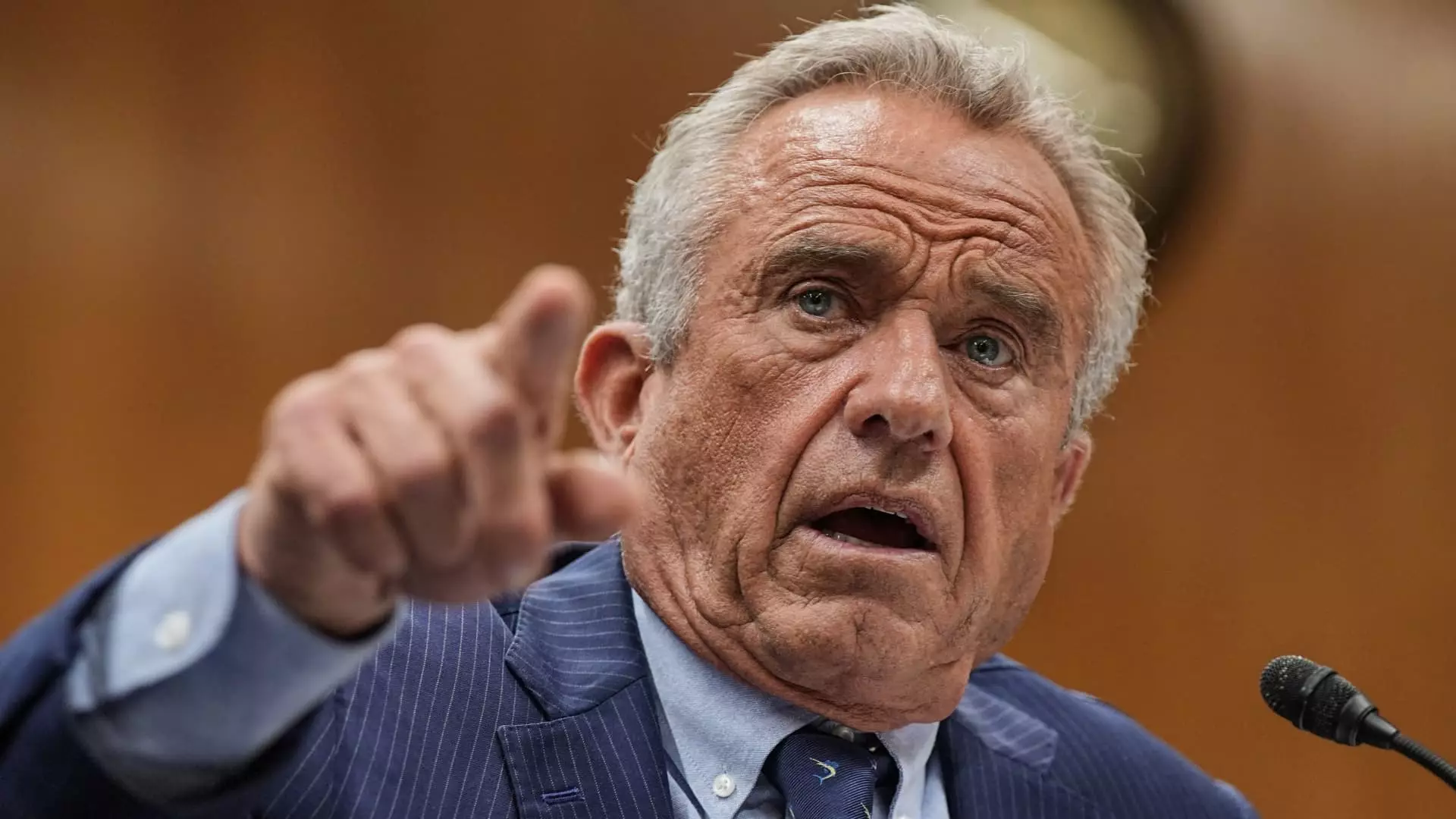The recent announcement from Health and Human Services Secretary Robert F. Kennedy Jr. regarding the sweeping dismissal of all 17 members of the Advisory Committee on Immunization Practices (ACIP) is not just a rare occurrence; it is a political bombshell that threatens to upend decades of public health consensus. By declaring the need for a “clean sweep” to re-establish public confidence in vaccine science, Kennedy has essentially thrown an established framework of independent medical advice into disarray, potentially stoking existing anxieties about vaccinations in the U.S. His rhetoric may seem conciliatory at first glance, but the implications behind this move raise numerous questions about the future of public health policy.
Kennedy’s justification for this drastic measure hinges on claims of persistent conflicts of interest and insinuations that the committee has devolved into a mere rubber stamp for vaccines. Yet, it is worth noting that the mechanisms designed to prevent such conflicts have been in place for years, and ACIP has always operated under stringent guidelines governing the disclosures and limitations of its members. This sweeping assertion not only undermines the dedicated experts who have served on the committee but casts a long shadow of doubt on their motivations.
Political Machinations or Public Health?
As Kennedy shifts the personnel of this pivotal advisory board, the motivations behind these changes become increasingly suspect. He has made it clear that his agenda prioritizes the restoration of public trust over a pro- or anti-vaccine stance. However, is it truly in the best interest of public health to reformulate this committee solely through a political lens? The immediate concern is that this overhaul could lead to recommendations that prioritize skepticism over scientific rigor, pushing us down a path where fear and misinformation may flourish.
In the landscape of an already polarized discourse surrounding vaccinations, Kennedy’s declaration of the exodus of ACIP members echoes sentiments that can easily be co-opted by vaccine skeptics. This movement away from an expert-driven process could yield recommendations that disproportionately highlight potential harms versus benefits. Such an approach not only undermines the organization’s efficacy but contributes to a culture of doubt that can have real and devastating consequences for public health.
The Risks of Distrust
Under Kennedy’s leadership, HHS has exhibited troubling signs of a potentially politicized health agenda. For instance, the cessation of routine Covid-19 vaccinations for healthy children and pregnant women is a notable deviation from established public health recommendations. The potential consequences of such decisions ripple through communities, especially in vulnerable populations. The eradication of structures designed to address public health risks, such as the cancellation of future vaccine development initiatives, reveals a pattern that could diminish our preparedness for future outbreaks.
Kennedy’s controversial stance only exacerbates already prevalent vaccine hesitancy. The ACIP’s history is paved with scrutinizing various vaccines and making recommendations that protect public health—regardless of political affiliations. By shifting the committee’s framework, Kennedy risks crafting a narrative that further divides public trust in health institutions such as the CDC, which rely on ACIP’s scientific rigor to frame public health narratives.
A Call for a Rational Perspective
Despite the various accusations leveled against the current ACIP members, it’s essential to recognize the historical importance of their role. Their recommendations have often led to more cautious measures which have safeguarded public health. The nuanced critiques of vaccine use, such as the ACIP’s decision to limit the usage of Merck’s HPV vaccine, are testaments to a framework designed to protect citizens rather than promote blind compliance.
As Kennedy begins the process of appointing new members, one cannot help but wonder whether these individuals will prioritize rigorous scientific investigation or yield to more politically motivated agendas. Reinstating public confidence cannot be achieved through dismantling trustworthy systems; rather, it requires building upon an established foundation of scientific integrity and community engagement.
Kennedy’s move stands as a contentious chapter in public health policy, where vital decisions are predicated on the need for political affirmation rather than scientific validation. The stakes have never been higher, and the road ahead is filled with uncertainty. The question remains whether the efforts to reshape vaccine advisory panels will ultimately strengthen or fracture the very trust that is essential for effective public health outcomes.

